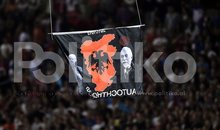
 Flash News
Flash News
The Assembly with a "censorship strategy" against the media under the umbrella of disinformation
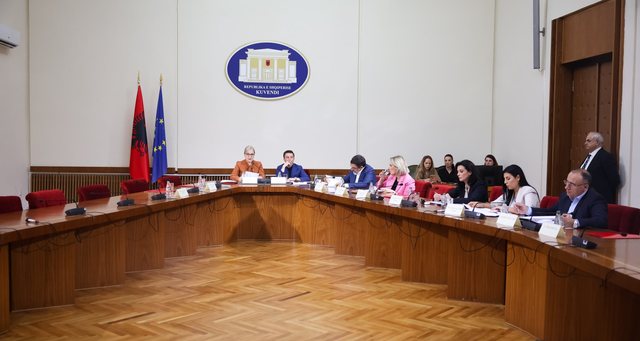
After the failed attempt to approve the "anti-defamation package" presented to the public as an attempt to fight fake news and disinformation, the Parliament has set up a Special Parliamentary Committee for the fight against disinformation which examines and approves on Wednesday the draft with four objectives with the aim of ' coordination to combat disinformation and other forms of foreign interference in the country's democratic processes".
One of its four main goals, also disputed by the opposition, which boycotted the first meeting of the constitution on June 26 , 2024, is " the protection and promotion of freedom of expression, media freedom and online and offline pluralism" with the aim of " increasing public awareness and the promotion of public debate about engagement against disinformation" .
The draft was presented on Thursday to civil society organizations and media representatives by the chairman of this commission, Erion Braçe, and by Secretary Etilda Gjonaj, who emphasized that their work will be finalized with the drafting of a national strategy in the fight against disinformation, and which will then be forwarded to the institutions related to the respective fields. The latter highlighted during the meeting that the two main principles of the Commission's activity will be transparency and inclusiveness, and, on their behalf, they left two working days for the representatives of NGOs to express their comments on this draft, announcing the noon of today as the deadline for their submission.
Meanwhile, the agenda of the next meeting of the committee was announced on the website of the Assembly, just one day later, in which it is emphasized that the draft decision "On the approval of the work objectives of the Special Parliamentary Committee" will be " examined and approved ". This means that members will have less than 24 hours to review comments or opinions submitted by interest groups.
This urgency in the terms of the public consultation according to Mr. Brace is justified by the closing of the parliamentary session, turning the hearing and presentation of arguments by interest groups into a completely formal process.
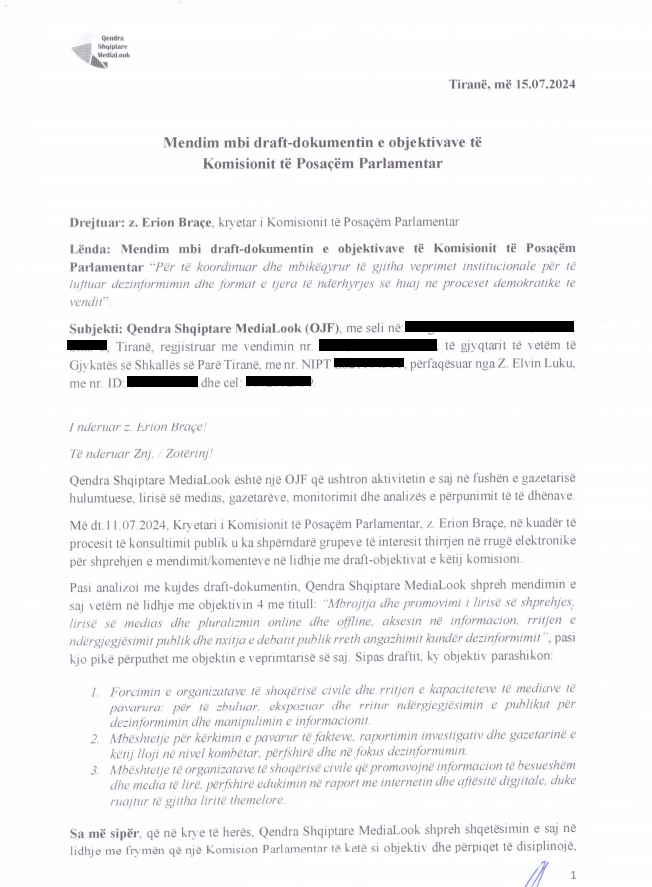 MediaLook, in response to the invitation received via email from the chairman of the Special Parliamentary Committee, Erion Braçe, analyzed the draft and submitted electronically to the Assembly his comments only on the fourth objective entitled: "Protection and promotion of freedom of expression, media freedom and online and offline pluralism, access to information, raising public awareness and fostering public debate about engagement against disinformation" , as this point aligns with her expertise.
MediaLook, in response to the invitation received via email from the chairman of the Special Parliamentary Committee, Erion Braçe, analyzed the draft and submitted electronically to the Assembly his comments only on the fourth objective entitled: "Protection and promotion of freedom of expression, media freedom and online and offline pluralism, access to information, raising public awareness and fostering public debate about engagement against disinformation" , as this point aligns with her expertise.
As stated in the document made available by the Assembly, objective 4 provides:
In the analysis sent to all members, at the beginning of the session, MediaLook, first of all, has expressed concern about the spirit that a Parliamentary Commission has as its objective and tries to discipline, strengthen, select or try to increase the capacities of the media independent or civil society organizations with the argument that " it is protecting freedom of expression, off/on line media ". It is not possible for the "legislative power" which is supervised by the "fourth power", to undertake such an initiative with the aim of "correcting" the fourth power. There is a confusion of roles, concepts, there is an interference in the independence of the fourth power (NGOs/Media/journalists) and it is an alarm or an attempt to violate and not protect the freedom of expression.
Secondly, the MediaLook Center notes with concern the fact that a parliamentary committee " provides support for independent fact-finding... with a focus on disinformation ", i.e. there is an attempt by the legislature to interfere with media content and instruct the media on how to search, as to research, what sources to use and how to report different topics, under the umbrella of disinformation. This support comes precisely from one of the main institutions of political propaganda.
Thirdly, the document of the Special Parliamentary Commission states that " it aims to increase the capacities of independent media and strengthen NGOs to expose and detect manipulation of information" . This point specifically means the return of the Assembly to a donor or mediator for donation, that is, for the financing of the media/NGOs in increasing capacities in human resources and infrastructure. Practically, if this is an objective of the Special Commission, there is an attempt to influence through funding directly or indirectly the dictation of media content.
Së katërti, drafti i Komisionit të Posaçëm Parlamentar evidenton se do të ofrojë “mbështetje organizatave të shoqërisë civile që promovojnë informacion të besueshëm dhe media të lirë”. Pyetja që ngrihet lidhet me faktin se si do të përcaktojë ky komision se kush janë OJF-të dhe mediat që ofrojnë informacion të besueshëm dhe ato që nuk ofrojnë informacion të besueshëm. A kanë tagër ligjor apo profesional një grup deputetësh të Kuvendit të Shqipërisë të vlerësojnë cilësinë dhe vërtetësinë e përmbajtjes së këtyre mediave/OJF-ve, ku politika ndërhyn dhe përcakton se çfarë është informacion i besueshëm dhe çfarë jo? Do të shënohej një precedent i rëndë.
Së pesti, MediaLook i ka kërkuar kryetarit Braçe, informacion në lidhje me rolin e deputetes, znj. Etilda Gjonaj në hartimin e këtij drafti, por nuk ka marrë një përgjigje. Arsyeja nuk lidhet me figurën e respektuar të deputetes, por me faktin se znj. Gjonaj ka qenë në krye të institucionit të Ministrisë së Drejtësisë në periudhën e hartimit të të ashtuquajturit “draft antishpifje”. Ky draft, i kontestuar gjerësisht nga të gjitha organizatat vendase apo ndërkombëtare se “cenonte lirinë dhe pavarësinë e mediave”, ishte përpiluar nga një grup pune pranë kësaj Ministrie dhe është prezantuar nga vetë zëvendësja e znj.Gjonaj përgjatë seancave konsultuese me grupet e interesit. “Shqetësimi ynë, – thuhet në analizën e MediLook, në lidhje me rolin e znj.Gjonaj ka të bëjë me faktin se si mundet që një promotorë e “draftit antishpifje” që censuronte median online, por jo vetëm, të jetë promotorë e një drafti në një komision me qellim mbrojtjen e lirisë së medias.
Në konkluzion të analizës së saj MediaLook vlerëson se Komisioni i Posaçëm Parlamentar duhet të heqë/rishikojë objektivin nr. 4 të tij, i cili “në frymë dhe përmbajtje ka si synim cenimin e lirisë së medias, kontrollin e përmbajtjes mediatike dhe nxitjen e dezinformimit”. Në momentin aktual cdo lloj financimi me para publike nga institucione me varësi politike, do të përbënte një problem serioz për median dhe gazetarët e pavarur.
Në vend të kësaj pike, përfaqësues të MediaLook kanë sugjeruar se i vetmi mjet dhe e vetmja ndihmë që ky Komision mund t’i japë reporterëve, mediave dhe gazetarëve është të krijojë akses, liri dhe heqjen e masave shtrënguese që Kuvendi ka apo planifikon të ketë në raport me mediat dhe gazetarët. Për këtë, thuhet në dokumentin e depozituar nga MediaLook, sugjerojmë që ky objektiv të zëvendësohet me një seri masash në Parlament për, të lejuar gazetarët të raportojnë dhe zbërthejnë propagandën politike që vjen nga salla e Kuvendit:
It remains to be seen what the position of the Special Committee of the Parliament will be and how comprehensive the latter will be to consider the comments and expertise of interest groups, which are against any kind of national media education strategy. from the Assembly and politically dependent institutions to combat disinformation.
Received MediaLook
Latest news


Not only the body, swimming also helps the brain
2025-07-05 21:02:49
"Be careful with the water", Alimehmeti warns about the health risks of summer
2025-07-05 20:39:10
PSG beats Bayern Munich 2-0, advances to Club World Cup semifinals
2025-07-05 20:19:38
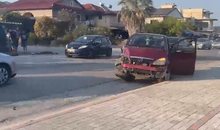
Two vehicles collide on the Elbasan-Peqin axis, drivers injured
2025-07-05 19:26:29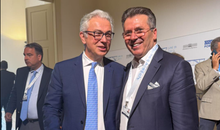

What does Zelenskyy have more than Zegjineja?
2025-07-05 18:45:26

Fiscal peace, but at a cost
2025-07-05 18:00:10
'Bankers' tax evasion, Chinese CEO and former director jailed
2025-07-05 17:39:21
Kyle Walker joins English club on two-year deal
2025-07-05 17:20:24
Two cars collide on the Saranda-Delvina axis, 4 injured
2025-07-05 17:05:29
Touching gesture! Liverpool will pay Jota's family's salary until 2027
2025-07-05 16:45:18
The zodiac signs that cheat most often
2025-07-05 16:25:53

"I asked for the dismissals", Dredha tries to soften Rama's 'blow' in Vlora
2025-07-05 15:48:49
Bomb threat in Parliament, prosecutor: It was a lie
2025-07-05 15:22:28

Bardhi: The recount revealed how greedy Zeqine Balluku is in stealing
2025-07-05 14:44:29
Knife wound on the secondary road Tirana-Durrës, perpetrator sought
2025-07-05 14:37:54
Tears and pain, Diogo Jota is escorted to his final home
2025-07-05 14:21:34
Success starts with yourself! Simple ways to invest in personal development
2025-07-05 13:58:50
Unlicensed firearms found in apartment, 50-year-old arrested in Lushnje
2025-07-05 13:43:11

Tirana Court remands Skerdi Sina to prison
2025-07-05 12:59:34
Cocaine laboratory in Greece, here are the Albanians arrested and wanted
2025-07-05 12:40:16
Directed Justice/Vangjeli: SPAK does not investigate any scandal involving Rama
2025-07-05 12:22:03

Bomb alert, Police remove MPs and media from Kosovo Parliament building
2025-07-05 11:48:16
"The will of the people" and the irony of ordered resignations
2025-07-05 11:32:05
Summer drowning risk: How to enjoy the water without risking your life
2025-07-05 11:20:27
Fire situation in the country, 16 fires reported in 24 hours, 4 still active
2025-07-05 11:07:04
Car hits pedestrian at white lines, injured in serious condition in Vlora
2025-07-05 10:59:58
Mosquito-borne diseases are a growing problem in Europe
2025-07-05 10:44:13



One of Sweden's most dangerous and wanted criminals arrested in Turkey
2025-07-05 09:38:29
Foreign exchange/ How much foreign currencies are bought and sold today
2025-07-05 09:18:38

"Don't be influenced by the opinions of others", today's horoscope
2025-07-05 08:40:50

Morning Post/ In 2 lines: What mattered yesterday in Albania
2025-07-05 08:02:07

Trump says he's ready to raise tariffs to 70% on some countries
2025-07-04 22:35:52
Tre shenjat e zodiakut që do ‘pasurohen’ në Korrik
2025-07-04 22:05:09
Gaza War: Hamas Accepts US Proposal for 60-Day Ceasefire
2025-07-04 21:50:10
Autocracy in Albania, Fuga: Governance has gotten out of control
2025-07-04 21:40:51
Meta: Agriculture on credit, the new fraud!
2025-07-04 21:26:39




Vote recount in Durrës ends without changes
2025-07-04 20:12:54
Gas station explodes in Rome, 25 injured (VIDEO)
2025-07-04 20:00:20

These afternoon habits often sabotage weight loss
2025-07-04 19:39:28
Former Arsenal player Thomas Partey accused of rape
2025-07-04 19:24:21
Shepherd disappears without a trace in Delvina
2025-07-04 19:14:31

Bardho gave Zegjine's mandate/Braho: Unfair! It violates the electoral system
2025-07-04 19:01:08


Rapid developments in the Sultanates!
2025-07-04 18:00:06



Italy tightens rules for skateboard traffic
2025-07-04 17:20:18

Unusual for the time, dense fog covers the coast of Vlora
2025-07-04 16:48:01


Accident on the Shkodra-Lezhë axis, one dead and 3 injured
2025-07-04 16:14:19
Albania with fewer requests for asylum and Albanian citizenship in 2024
2025-07-04 16:06:57

Albania last for quality of life, DP: Technical government is the solution!
2025-07-04 15:42:30
Nico Williams says "No" to Barcelona, signs with Athletic Club until 2035
2025-07-04 15:33:35
Fires in the country, four fires are still active, what is the situation?
2025-07-04 15:24:20

Summer brings big changes for these 4 zodiac signs
2025-07-04 15:00:04
Osmani: MPs need to agree to a secret ballot for the Speaker of Parliament
2025-07-04 14:51:09
Serious accident on the Peqin-Elbasan axis, two injured
2025-07-04 14:37:56

GJKKO leaves in force the security measure for the head of the KPP
2025-07-04 13:58:17
Who will replace Ilir Meta and take over the leadership of the PL?
2025-07-04 13:50:36
Berisha: Dismissal of directors in Vlora, another act of 'scapegoats'
2025-07-04 13:41:46




Librazhd/ In a serious psychological state, the young man consumes pesticides
2025-07-04 13:05:07


Weapons trafficked from Kosovo to Albania, two arrested, 8 pistols seized
2025-07-04 12:33:28
Konsumimi i tepërt i çokollatës, ja cilat janë dëmet që shkakton në organizëm
2025-07-04 12:23:35

Fires in the country, 21 fires in the last 24 hours, 4 still active
2025-07-04 12:00:19
WB calls for debt transparency: Albania to publish details of every loan
2025-07-04 11:50:05
